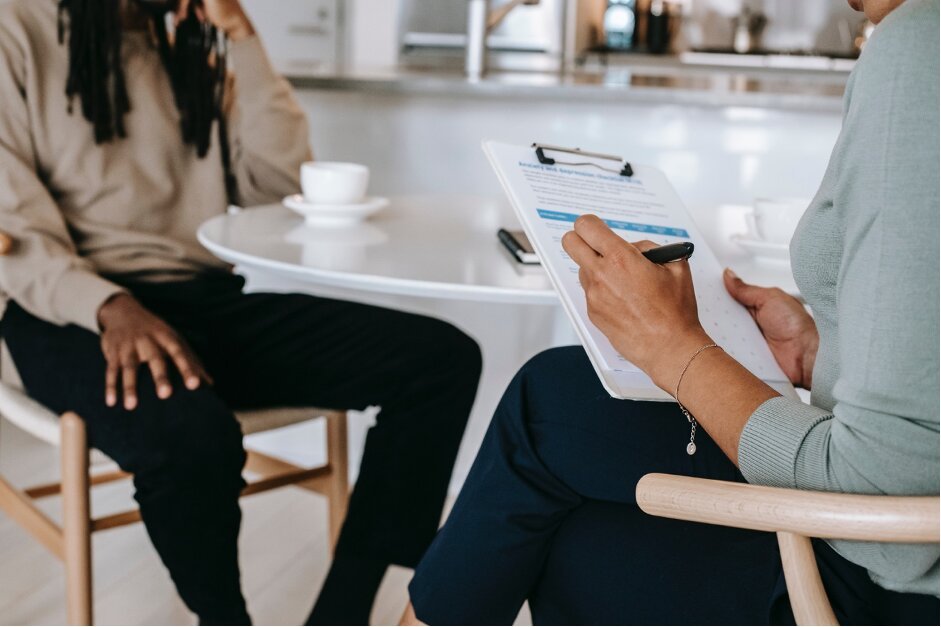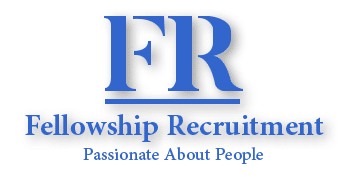First Impressions Count: Do Not Underestimate Your Body Language During An Interview
- Written by Lavinia Appadoo
- •
- July 12th, 2021
- •
- 10 Minute Read

How you present yourself to someone can tell you more than the words you speak. It is important to analyse your behaviour, actions and mannerisms as they can contribute to how successful or unsuccessful you are in an interview. Your body language is an important indicator of how you react, your interest and your confidence for potential employers. It is okay to feel nervous and anxious as you want to do your best, but you should always be mindful of your body language when going to interviews. Looking at recent statistics by Undercover Recruiter, 33% of employers know within the first 90 seconds whether or not they will hire you. This can be frightening, as we are naturally judgemental so it is important to make a positive first impression – but how do you ensure you can have an instant positive impression on a potential employer?
Take a look below at the impact of first impressions and body language techniques, the dos and don’ts. You can use this information to learn how to behave and make a good lasting impression that guarantees results.
First Impressions:
• Dress to Impress
Present yourself well and dress for success. Appearance affects how you are perceived and although we have all heard of the “don’t judge a book by its cover” axiom, unfortunately, appearance plays a major role when it comes to first impressions. Wearing the right or wrong attire can change the course of the interview. What you wear can say a lot about your attitude, professionalism and your enthusiasm for securing the role. Make sure you feel comfortable in what you are wearing, if something is too restrictive it can show in your body language and you will probably be less self-assured.
Useful tips: Make sure your clothes are ironed and clean. For men, wear a tie and a suit. For women, stay away from short shirts and jeans. Wear either blouses, blazers, skirts, dress or trousers.
• Knowledge
It is obvious to the potential employer whether or not you have done some basic research for your interview or not, which makes one of the first impressions. When going for an interview you want to make sure you are prepared for anything, as some things might surprise you. Doing some research about the company prior to the interview will help you, research the company’s values, competitors and the interviewer as starting points. Knowing the fundamentals is key to showing your interest and your knowledge of their company.
If you’re with a recruitment company, your recruiter can help with making sure you have all the documents needed for the interview and even give you some tips and information that would be useful. The most important time through the interview process is when you talk to the employer and answer their questions. Give either a verbal or physical response, make sure to ask questions too. This will show your eagerness to learn more about the job and also shows the interviewer whether or not your personality fits in with a team and the company culture.
Remember to shake hands with everyone in the interview room, say hello and smile as you are being interviewed from stepping into the building. You do not know who you will meet in the lift, bathroom, whilst waiting for your interview so always be aware of your body language.
• Don't Be Late
Your punctuality is often the first significant impression to the employer, so plan how you will get there, and leave earlier just in case you get stuck in traffic. It is fine to give them a call and let them know if you’re running late but of course, it is better to avoid being late in the first place.
Getting an early night sleep the day before is crucial to help you perform your best. Good breakfast and some quick breathing exercises will help relax your nerves too. Being on time sets the expectation of the employer from the get-go. This shows the employer good time management skills and organisation skills but also that you are a reliant individual. However, don’t arrive too early as it could cause unsettling pressure on both you and the interviewer. The interviewer might feel obliged to meet you quickly, but remember, they are also trying to impress you.
Be watchful of nervous moments – here are some obvious body language signs for lateness:
- Rushing
- Shaking
- Stressed
- Apologetic
- Restlessness
When in the waiting room, avoid using your phone, instead, try and familiarise yourself with your surroundings so you are confident in where to go. Always try and be aware of everything that is happening whilst you wait. Don’t focus too much on your thoughts, for instance, how the interview will go. Hopefully, you have prepared for it and are well equipped to smash the interview process. It’s okay to feel nervous, but don’t let it affect you too much as it can ruin your chance of success. Most employees tend to be quieter and enunciate less when they are feeling anxious which ultimately reveals your lack of confidence, crush your credibility and ruins your chance of making a good first impression.
An interesting fact is that 55% of our communication is through non-verbal communication. Through visual cues, such as appearance, body language, facial expressions, the interviewer would have formed a n impression before the interview has even started. Body language is therefore very important as it could be the deciding factor of interview success.
What to Avoid:
• Fiddling
Fiddling is one of the first signs that can be quite damaging, it can undermine your authority and even annoy the interviewer. This can be clicking the pen, touching your hair frequently, twisting your ring or bracelet and so on. This can be a sign of boredom or impatience.
Solution: Sit with your arms in your lap or on the arms of the chair, make yourself feel comfortable. Mirror your movements of the employer as it can help create a common ground between you and them. Most importantly, be respectful and professional, don’t get too close to them and invade their personal space as it may make the interviewer feel more uncomfortable and use hand gestures with caution.
• Poor Eye Contact
The best approach to show you are paying attention is through making engaging eye contact to show that you are listening and taking in what they are saying. Eye contact should be moderated though, here are a few mistakes to avoid when in an interview:
- Prolonged staring can also be problematic as it can make the employer feel uncomfortable.
- Excessive blinking or fleeting eye contact can imply that the employee is feeling under pressure.
- Lack of eye contact looking away, up at the ceiling, anywhere but the interviewers face suggests the candidate feels insecure.
- Squinting could be a sign that the candidate is considering the question from the employer which can be a sign of distrust.
- Looking down can come across as uncertain.
Solution: Try and relax and engage with your employer by having comfortable eye contact which shows you are at ease with the situation. If there is more than one interviewer, try and make contact with both of them.
• Poor Posture
Sitting hunched forward or slouching can seem either being too relaxed or disengaged. Avoid crossing your arms too as it can come across as being defensive and creates an unsettling and negative tone. Clenched fists and being too stiff in posture are also a mistake to avoid as you may be portrayed as aggression, nervousness and being uncomfortable.
Solution: Maintain upright posture from the waiting room to when you leave. Make gestures that show interest, by not crunching on the chair and resting hands on the table. Make sure your body language is open and not implementing disinterest. By altering your body posture, leaning slightly forward when the interviewer is talking, you can come across as more open and attentive which projects positivity and confidence to the interviewer.
• Sad Expressions
No one is approachable or employable if they look miserable. This can come across to the interviewer that you don’t want to be there and are not interested in taking the interview. Being sad can affect how the interviewer feels themselves and makes it harder for you to succeed as the impression is shown through your actions and not words.
Solution: No one is approachable or employable if they look miserable. This can come across to the interviewer that you don’t want to be there and are not interested in taking the interview. Being sad can affect how the interviewer feels themselves and makes it harder for you to succeed as the impression is shown through your actions and not words.
• Unpleasant Handshakes
Be the first one to offer a firm handshake. This shows confidence, but try not to keep it for too long to avoid an awkward situation. The interviewer will remember your body language and how you present yourself but most importantly how you answer the questions.
Solution: Exit with a smile and handshake remember to keep eye contact as you shake their hand. Doing this is not only polite, but you are establishing a connection with them.
Summary:
You don’t need a psychology degree to know how body language works, the important part is understanding how you react in certain situations and what can be improved. After looking at body language mistakes and how to avoid them you should be well equipped for your interview.
From my own experience of interviews, I always try and remain conscious of my body language in an interview, I try and remain relaxed throughout and think of it as an interviewer getting to know me and how I can help their company grow. You can practice your first impressions in an everyday environment such as coffee shops or food shops so remember to make a confident entrance and hone your skills, so start today!
If you need more guidance for interviews and more have a look through some of our blogs or visit our website for more information.
